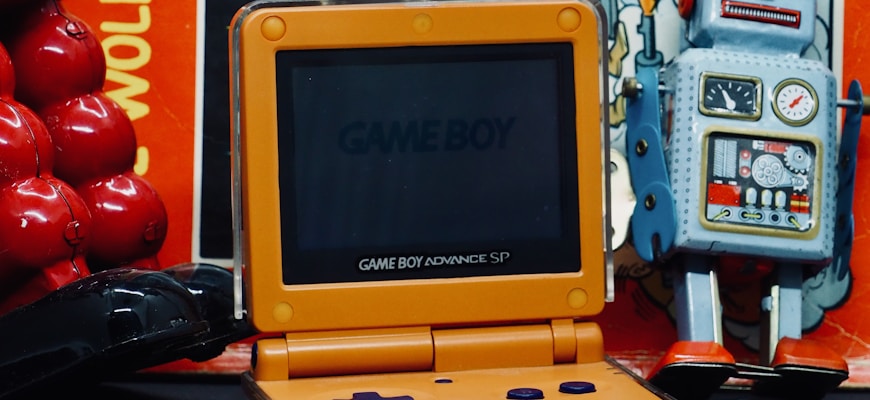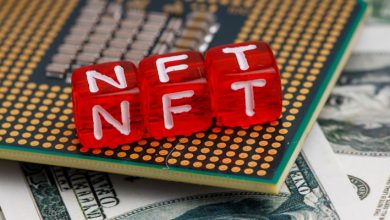The Role of NFTs in Gaming

- Understanding the basics of NFTs
- How NFTs are revolutionizing the gaming industry
- Benefits of using NFTs in gaming
- Challenges and limitations of NFTs in gaming
- Exploring the potential of NFTs for in-game assets
- The future of gaming: NFTs as a game-changer
Understanding the basics of NFTs
NFTs, or Non-Fungible Tokens, have been making waves in the gaming industry recently. But what exactly are NFTs and how do they work?
An NFT is a unique digital asset that is stored on a blockchain, making it one of a kind and unable to be replicated. Unlike cryptocurrencies like Bitcoin, which are fungible and interchangeable, NFTs are indivisible and cannot be exchanged on a like-for-like basis.
One of the key features of NFTs is that they can represent ownership of a digital item, such as in-game assets, skins, or even entire games. This ownership is recorded on the blockchain, providing transparency and security for both the buyer and the seller.
When it comes to gaming, NFTs have the potential to revolutionize the industry by allowing players to truly own and trade their in-game items. This opens up new opportunities for developers to create unique and valuable assets that players can collect, buy, and sell.
How NFTs are revolutionizing the gaming industry
NFTs have emerged as a game-changer in the gaming industry, offering a new way for players to buy, sell, and trade in-game assets. These non-fungible tokens are unique digital assets that are stored on a blockchain, making them secure and immutable. One of the key ways NFTs are revolutionizing the gaming industry is by allowing players to truly own their in-game items. Unlike traditional games where items are owned by the game developer, NFTs give players full ownership and the ability to transfer or sell their assets as they see fit.
Another significant impact of NFTs in gaming is the concept of play-to-earn, where players can earn real-world value by playing games and collecting valuable in-game items. This has the potential to disrupt the traditional gaming economy, where players typically spend money on in-game purchases without the ability to recoup any of their investment. With NFTs, players have the opportunity to monetize their gaming experience and potentially make a profit by selling rare or valuable items to other players.
Furthermore, NFTs are enabling new forms of gameplay and experiences in the gaming world. Game developers are leveraging NFT technology to create unique and collectible in-game assets, such as rare skins, weapons, or characters. These assets can be limited in quantity, making them highly sought after by players looking to build their collections or enhance their gaming experience. Additionally, NFTs are being used to create verifiable scarcity in games, adding a new layer of excitement and value for players.
Benefits of using NFTs in gaming
There are numerous benefits to using Non-Fungible Tokens (NFTs) in the gaming industry. NFTs provide a unique way for gamers to truly own their in-game assets, allowing them to buy, sell, and trade items with other players securely. This creates a more immersive gaming experience and gives players a sense of ownership over their digital belongings.
Furthermore, NFTs can help game developers monetize their creations in new and innovative ways. By tokenizing in-game assets, developers can generate additional revenue streams through the sale of limited edition items, exclusive content, and even virtual land within the game world. This can lead to increased profits and sustainability for game developers.
Another advantage of using NFTs in gaming is the increased transparency and security they provide. Since NFTs are built on blockchain technology, every transaction is recorded on a decentralized ledger, ensuring that ownership of assets is secure and cannot be tampered with. This also helps to prevent fraud and counterfeiting within the gaming ecosystem.
Additionally, NFTs have the potential to foster a more vibrant and interconnected gaming community. Players can connect with each other through the trading and sharing of NFTs, creating a sense of camaraderie and collaboration. This social aspect of NFTs can enhance the overall gaming experience and encourage players to engage more deeply with the game and its community.
In conclusion, the integration of NFTs in gaming offers a wide range of benefits, from empowering players with true ownership of in-game assets to providing new monetization opportunities for developers. With their transparency, security, and community-building capabilities, NFTs have the potential to revolutionize the gaming industry and shape the future of interactive entertainment.
Challenges and limitations of NFTs in gaming
While NFTs have the potential to revolutionize the gaming industry, there are several challenges and limitations that need to be considered. One of the main issues is the environmental impact of blockchain technology, which is used to create and trade NFTs. The energy consumption associated with blockchain transactions is significant, leading to concerns about the carbon footprint of NFTs in gaming.
Another challenge is the scalability of NFTs in gaming. As more players start to use NFTs to buy, sell, and trade in-game assets, the blockchain networks may struggle to handle the increased volume of transactions. This could result in slower transaction times and higher fees, making it less practical for smaller transactions.
Additionally, there are concerns about the security of NFTs in gaming. Since NFTs are stored on a decentralized blockchain, they are vulnerable to hacking and theft. If a player’s NFTs are stolen, it can be difficult or impossible to recover them, leading to potential financial losses.
Exploring the potential of NFTs for in-game assets
The potential of Non-Fungible Tokens (NFTs) for in-game assets is vast and exciting. NFTs have the ability to revolutionize the gaming industry by offering players true ownership of their digital items. This ownership is made possible through the use of blockchain technology, which ensures that each NFT is unique and cannot be replicated or forged.
By leveraging NFTs, game developers can create a new revenue stream by selling in-game assets directly to players. These assets can range from characters and skins to weapons and virtual real estate. Players can then buy, sell, and trade these assets on various NFT marketplaces, providing them with a sense of ownership and value that was previously unattainable.
Furthermore, NFTs can also be used to reward players for their achievements within a game. For example, a player who completes a particularly difficult level or quest could be rewarded with a unique NFT that signifies their accomplishment. This not only incentivizes players to engage more deeply with the game but also creates a sense of prestige and exclusivity among the gaming community.
The future of gaming: NFTs as a game-changer
NFTs have emerged as a revolutionary technology that is set to transform the gaming industry. These non-fungible tokens offer unique digital assets that can be owned, bought, and sold by players. This opens up a whole new world of possibilities for gamers, developers, and investors alike.
One of the key advantages of NFTs in gaming is the ability to truly own in-game assets. Unlike traditional games where items are stored on centralized servers and can be taken away at any time, NFTs are stored on the blockchain, ensuring ownership is secure and transparent. This gives players a sense of true ownership and control over their digital belongings.
Another game-changing aspect of NFTs is the potential for interoperability between different games. Players can use their NFT items across multiple games, creating a seamless gaming experience and increasing the overall value of their assets. This cross-compatibility opens up new avenues for creativity and collaboration within the gaming community.



